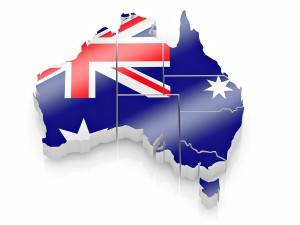Over the past month, we have reported that some nations would be getting Bitcoin (BTC) ATMs, otherwise known as BTMs. New York, Vancouver, Hong Kong and others have installed these machines or on the verge of doing so. Australia plans to outdo them all.
According to local news and a radio report by ABC’s World Today, about 100 bitcoin ATMs will be rolled out across the country by a company called Australia Bitcoin ATMs. These machines, much like those before them, allow users to convert digital currency into physical cash or vice versa.
Although the report was short and not that descriptive, but Chris Guzowski, the enterprise’s CEO, told the Australian radio outlet in an interview:
“You can type in how many bitcoins you want to sell, then our ATM goes onto an overseas bitcoin exchange and executes that transaction for you and will spit out the cash for which you sold the bitcoin for. And the opposite also applies, so you can put cash in and purchase bitcoin.”

“Look it’s possible. It’s no secret, and everybody should be aware of the risk profile of Bitcoin,” said Guzowsi.
One expert, David Glance from the University of Western Australia’s Centre for Software Practice, said that another major factor bitcoin ATM operators should consider is that until the nation’s central bank actually lends its support to the virtual currency then the alternative currency is “always going to be a niche.”
In December, the central banks of Australia and New Zealand presented warnings and identified bitcoin and others like it as risky. At the time, Glenn Stevens, governor of the Reserve Bank of Australia, explained in an interview with the Australian Financial Review that he was still attempting to understand the digital currency.
“Best I can see, it would be open to you to create a currency called the ‘Michael’ and get people to buy it and you could promise to, you know, only issue so much of it and if people had confidence in that they could use that as a kind of numeraire,” said Stevens. “You could measure things in Michaels. You could buy and sell them.”
John McDermott, assistant governor of the Reserve Bank of New Zealand, suggested the private sector should “tread very carefully” when dealing with bitcoin transactions.
“You have to worry about […] the supply, how it’s controlled, how it’s monitored,” the central bank representative told the Wall Street Journal. “Who knows at this point? There is still a lot for the world to learn on this issue.”
In terms of volatility, bitcoin has remained relatively stable throughout the month of January and has been trading anywhere from $800 to $850.
For more bitcoin news follow PFhub on Twitter or bookmark this page.




